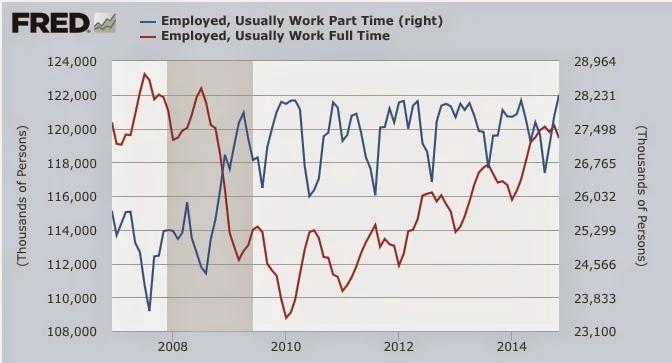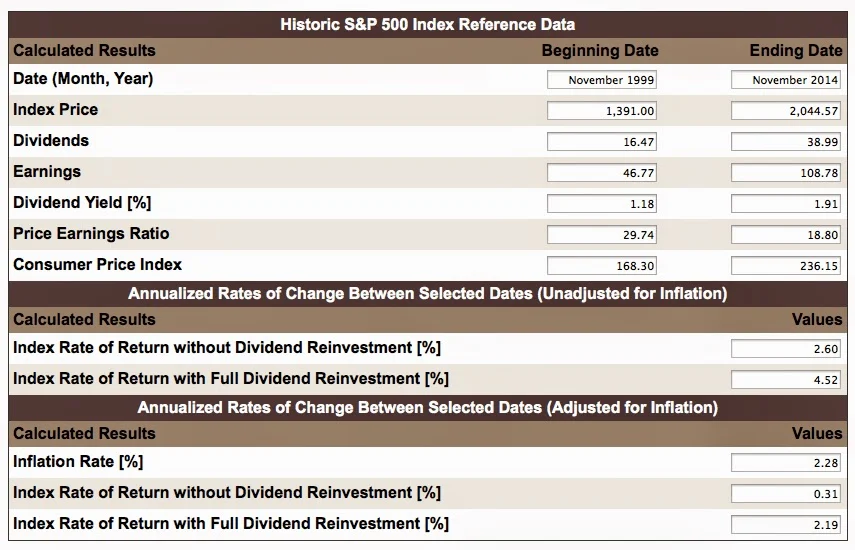The latest screed is
here, claiming that healthcare spending is "the reason" behind the surge in Q3 GDP.
From the BEA
here, healthcare spending contributed 0.52 points (line 17) to 5.0 GDP, about 10.4% of the total.
Zero Hedge wants to leave the impression there was no single bigger contributor to GDP, which isn't the case at all:
Equipment contributed 0.63 (line 30)
Durable goods 0.67 (line 4)
Pure consumption from defense spending 0.69 (line 55)
Export of goods 0.69 (line 47).
More importantly, it's not like we haven't spent 0.52 points of GDP on healthcare before.
We spent 0.51 in 4Q2011, 0.70 in 1Q2012, 0.48 in 4Q2013, and 0.45 in 2Q2014.
That last one is really important. It's the third estimate final figure of healthcare spending for the immediately preceding quarter, which can now be compared to the third estimate final figure for this one. The difference? Just 0.07 points, for an increase in healthcare spending of 15.5% on an annualized basis from 2Q to 3Q. As I've said, we've seen such increases before, quite apart from any new developments over ObamaCare.
The proper comparison, notably, is with 2Q, not with the previous estimate of healthcare's contribution to GDP for the current quarter, which, like everything else, was admittedly incomplete in the BEA's own words, as is always the case with the estimates before the third and final report.
And what that shows, last of all, is that GDP hasn't "surged" at all between 2Q and 3Q. The only thing which surged is the final revision based on the more complete data. The quarterly measure of GDP is up a very modest 0.40 points, from 4.6 to 5.0, or about 8.7% on the annualized basis. Healthcare's share of that increase to GDP is just 17.5%. 82.5% comes from other categories.
The worrisome thing is all kinds of people read and sometimes quote Zero Hedge: Rush Limbaugh, John Hussmann and Bill Gross come to mind. And Real Clear Markets often links to it, which is how I saw it.
Zero Hedge is embarrassing to read, kind of like pornography.


































